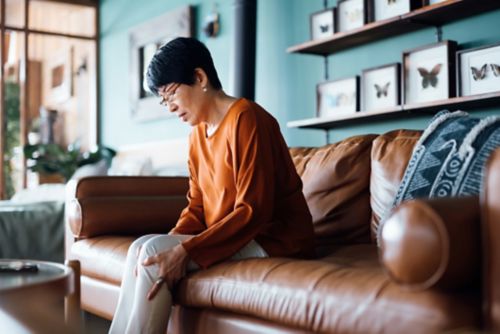Cancer survivors need screening and treatment to manage chronic pain

Although most children survive their cancer, they often have physical problems, such as chronic pain, later in life.
The study “Exploring Aspects of Survivors’ Experience of Pain (EASE)” included adults who took part in the Childhood Cancer Survivor Study (CCSS). Researchers asked these survivors if they had chronic pain and if pain affected their daily lives. Investigators also looked at factors that increased risk for chronic pain and the effect of pain on cognitive-affective factors (thinking and mood). Depression, anxiety, and negative thinking about the experience of pain can increase the experience of pain.
This study showed that:
- Chronic pain was reported by 41% of people in the study. They often had pain in their lower back, legs, necks, and feet.
- Of those with chronic pain, 24% had severe problems with daily living and daily tasks because of their pain (known as pain interference).
- Chronic pain was linked to previous treatment with the chemotherapy drug methotrexate given by vein (IV).
- Chronic pain was found in people who had problems with their heart and nervous system, who were unemployed and had depression and anxiety, and those who were fearful that their cancer would come back.
- Males with anxiety and depression, who had problems sleeping, had more intense pain. The pain also affected their activities the next day.
What does this mean for you?
Many childhood cancer survivors have chronic pain that interferes with their daily life. If chronic pain is affecting your life, talk to your health care team. They can assess how much pain you are having and suggest how to treat it.
Pain management is important so you can do daily tasks. Your doctor can tell you how to manage pain with medicine, and in some cases, manage the pain without medicine.
Reference
Alberts NM, Leisenring W, Whitton J, Stratton K, Jibb L, Flynn J, Pizzo A, Brinkman TM, Birnie K, Gibson TM, McDonald A, Ford J, Olgin JE, Nathan PC, Stinson JN, Armstrong GT. Characterization of chronic pain, pain interference, and daily pain experiences in adult survivors of childhood cancer: a report from the Childhood Cancer Survivor Study. Pain. 2024 Jul 9.
